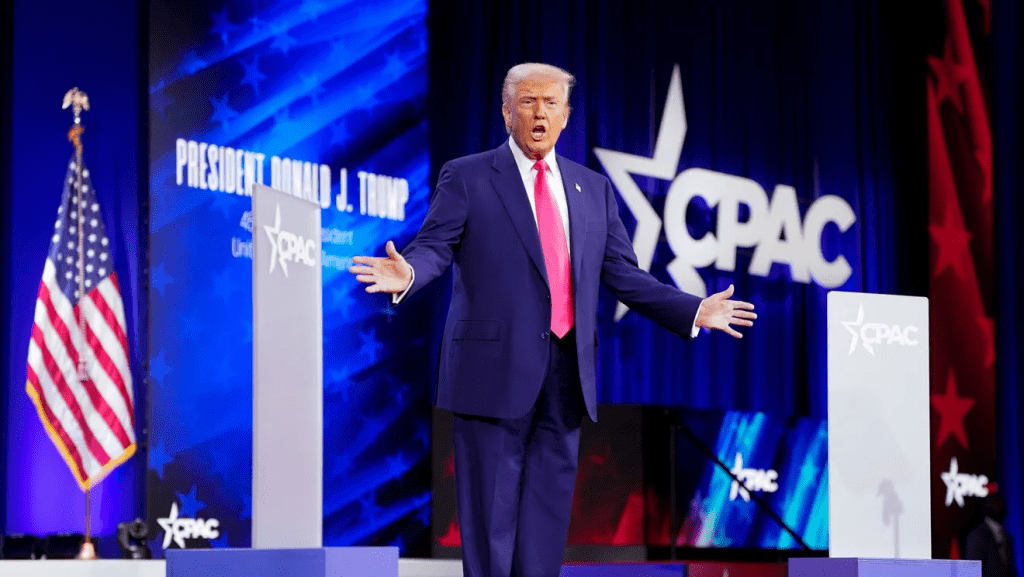In a move that has set off waves of debate and uncertainty, Elon Musk has issued an ultimatum to federal workers, demanding they report their accomplishments from the previous week via email—or risk being seen as having resigned. This unprecedented directive, linked to President Trump’s broader push for efficiency in government, has caught the attention of employees, legal experts, and public officials alike. As details continue to emerge, we take an in-depth look at what this mandate means for federal employees, the context behind it, and the implications it carries for the future of public service.

The Directive: What Federal Employees Must Do
Musk’s controversial message, first shared on X (formerly Twitter) and later delivered by email, instructs federal employees to detail their work achievements from last week. The email, which arrived late on a Saturday, carried the subject line “What did you do last week?” and required recipients to send approximately five bullet points summarizing their accomplishments, with their manager cc’d.
The directive is clear: “Failure to respond will be taken as a resignation.” Although the email refrains from mentioning immediate termination or disciplinary action, it leaves little room for ambiguity. Employees have until Monday at 11:59 PM EST to reply, with strict instructions not to include classified information, links, or attachments. The email appears to target the workweek starting February 16, a period shortened by Presidents Day. This abrupt demand has ignited a firestorm of reactions both online and in the halls of government agencies.
The Context: Trump Administration’s Vision for Efficiency
This mandate forms part of a larger initiative spearheaded by the Trump administration to overhaul the federal workforce. Dubbed the “workforce optimization initiative,” the plan aims to streamline operations and boost accountability among federal workers. According to officials, this move reflects the administration’s commitment to an efficient and transparent government—a goal that many see as essential in today’s fast-paced environment.
However, the implementation of such policies has not been without controversy. Critics argue that the directive is overly simplistic and fails to capture the complexities of public service. After all, can a few bullet points truly encapsulate the challenges, nuances, and collaborative efforts that define federal work? This question has fueled a broader debate on the value of metrics and the risks of reducing multifaceted job roles to mere checklists.
Consistent with President @realDonaldTrump’s instructions, all federal employees will shortly receive an email requesting to understand what they got done last week.
— Elon Musk (@elonmusk) February 22, 2025
Failure to respond will be taken as a resignation.
Employee Reactions: Shock, Anger, and Legal Challenges
As news of the mandate spread, federal employees and labor unions wasted no time in voicing their concerns. Many view Musk’s ultimatum as a disregard for the vital services that federal workers provide. The American Federation of Government Employees (AFGE) has condemned the move, with National President Everett Kelly labeling it “cruel” and “disrespectful.” In a strongly worded statement, Kelly emphasized that the directive trivializes the hard work and dedication of hundreds of thousands of public servants, including veterans who have dedicated their lives to civil service.
The union has pledged to challenge any unlawful terminations that might follow the failure to comply with the email request. This legal battle could have far-reaching consequences, potentially setting new precedents regarding how federal employees are managed and held accountable. Critics argue that the policy could force employees to justify routine work processes, reducing their roles to mere data points rather than recognizing the strategic and often unpredictable nature of public service.
Implications for Federal Work Culture
The directive has raised significant concerns about how the federal government values its workforce. On one hand, proponents see it as a necessary measure to drive productivity and accountability. They argue that in an era where government spending and efficiency are under intense scrutiny, such steps are crucial for modernizing public service.
On the other hand, many employees fear that this approach oversimplifies their roles. Federal work often involves long-term projects, complex inter-agency collaborations, and unforeseen challenges that cannot be easily summarized in a few bullet points. By focusing solely on last week’s achievements, the directive may overlook the broader, ongoing efforts that sustain the federal machinery. The potential risk is a work culture that prioritizes quick wins over sustained progress, leaving employees stressed and undervalued.

The Role of Elon Musk and Political Dynamics
Elon Musk’s involvement in this directive adds another layer of complexity to the issue. Known primarily as the CEO of high-profile technology companies, Musk’s foray into federal workforce management is both surprising and contentious. His post on X, which references direct instructions from President Trump, underscores the administration’s reliance on unconventional figures to drive policy changes.
Musk’s reputation as a disruptive innovator is well-established, but critics argue that his approach may not translate well to the bureaucratic world of federal service. While his ideas often push the boundaries of conventional thinking, the practical realities of managing a vast and diverse workforce require a more nuanced strategy. Musk’s role in this initiative has sparked debate about the appropriate balance between innovation and practicality in government policy.
Legal and Operational Challenges Ahead
As federal employees grapple with this new directive, legal experts are already examining its potential ramifications. The question of whether Musk—or the administration—has the legal authority to enforce such a measure looms large. While the email itself stops short of explicitly threatening immediate termination, its wording leaves the door open for significant administrative actions should employees fail to comply.
Agencies like the Consumer Financial Protection Bureau, the National Oceanic and Atmospheric Administration, and the Centers for Disease Control and Prevention have already received the email, and each may interpret the mandate differently. The Office of Personnel Management has stated that the move is part of a broader effort to enhance workforce efficiency, leaving the determination of any subsequent steps to individual agencies. This decentralized approach could lead to inconsistencies across departments, further complicating the situation for federal workers.
Public Perception and the Future of Federal Accountability
Public reaction to the directive has been mixed. While some see it as a bold step toward increased accountability in government, many are concerned about the potential negative impact on federal employees’ morale and job security. Social media platforms have been abuzz with opinions, ranging from outright support for stricter performance metrics to vehement opposition from those who view the mandate as an overreach of administrative power.
The debate touches on broader issues of how public servants should be evaluated and held accountable in an age where transparency is more critical than ever. Supporters of the measure argue that in today’s digital age, detailed reporting of weekly accomplishments is not only feasible but necessary to ensure that taxpayers’ money is well-spent. Critics, however, warn that such an approach risks reducing the rich, complex work of federal employees to a series of checkboxes, potentially stifling innovation and long-term strategic planning.
Conclusion: Balancing Efficiency and Human Value in Federal Service
Elon Musk’s recent ultimatum to federal employees to report last week’s accomplishments by a strict deadline has ignited a fierce debate over accountability, efficiency, and the intrinsic value of public service. While the directive is part of a broader push by the Trump administration to streamline government operations, its blunt approach has raised significant concerns about the impact on federal work culture.
Critics argue that reducing the complexities of federal work to a few bullet points undermines the depth and dedication required to manage the nation’s most critical agencies. On the other hand, proponents see it as a necessary measure to ensure that public servants are held accountable in an era marked by rapid technological and social change.
As legal challenges loom and agencies begin to interpret the directive in their own ways, one thing remains clear: the future of federal workforce management may well be at a crossroads. Balancing efficiency with the human element of public service is no easy task, and this controversy underscores the need for thoughtful, nuanced policies that recognize both accountability and the indispensable value of dedicated public servants.
In this unfolding drama, the coming weeks and months will reveal whether this bold move will usher in a new era of government efficiency or become a cautionary tale about the perils of oversimplification in public administration.